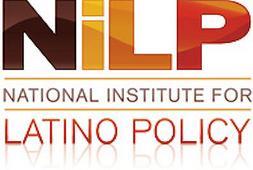
NiLP Guest Commentary
A Triumph for Puerto Rican Anti-Colonialism?
By Victor Vazquez-Hernandez
The NiLP Report
 On a beautiful sunny Sunday on June 11th, in San Juan, the rest of the
Island, New York City and the rest of the Diaspora more than a million
Puerto Ricans across the political divide expressed, in one way or another,
their disdain for the colonial status of Puerto Rico. Whether one agrees
or not with the last plebiscite (because of its low turnout and the boycott
by independence and autonomous forces), half a million people did turn
out to vote. In New York City, more than 250,000 Puerto Ricans from throughout
the Diaspora turned out to march at the National Puerto Rican Day Parade
and many others watched on television. These events generated an unprecedented
amount of media coverage throughout the United States.
On a beautiful sunny Sunday on June 11th, in San Juan, the rest of the
Island, New York City and the rest of the Diaspora more than a million
Puerto Ricans across the political divide expressed, in one way or another,
their disdain for the colonial status of Puerto Rico. Whether one agrees
or not with the last plebiscite (because of its low turnout and the boycott
by independence and autonomous forces), half a million people did turn
out to vote. In New York City, more than 250,000 Puerto Ricans from throughout
the Diaspora turned out to march at the National Puerto Rican Day Parade
and many others watched on television. These events generated an unprecedented
amount of media coverage throughout the United States.
Although the participation in both events was not as high as it could have been, they nonetheless placed the colonial status of the Island front and center in our political discourse and onto Congress' lap! The big loser is and has been the colonial Commonwealth status of the island. While for a century the anti-colonial discourse and struggle had been the primary purview of the pro-independence sector both on the Island and in the Diaspora, for the past 20 years or so, the pro-statehood sector has also claimed the "anti-colonial" mantle and pushed their agenda (statehood) as the reasonable response to end colonialism on the Island.
This sentiment is expressed even within the pro-Commonwealth party by a small, but significant sector calling themselves "soberanistas." These are members of the Popular Democratic Party who also have denounced the "colonial" status of the Island as they advocate "sovereign rights."
The anti-colonial portion of Puerto Ricans, I believe, now encompasses a majority aqui y alla!
Before anyone gets crazy on me, what I am saying is that there is a convergence, not a unitarian effort, but a convergence nonetheless. The majority of Puerto Ricans now consider the Island to be a colony of the United States, even if we differ vastly in how to resolve the issue.
In addition, all of the controversy surrounding the parade over the designation of Oscar Lopez Rivera as a National Freedom Hero brought quite a bit of attention to, you guessed it --- the colonial status of Puerto Rico! The anti-colonial forces could not pay enough for all the press and television coverage this issue received. Even U.S. television coverage on the results of the plebiscite on the Island, while correctly citing the low turnout (23%), in the same headlines cited the colonial status of the Island.
I think the proverbial "cat" is out of the bag! Ever since the $70 billion dollar debt issue came to the forefront, US Congress' PROMESA Act, and the appointment of the Fiscal Control Board, Puerto Rico's political status has been questioned. And so, the plot thickens . . .
As result of the plebiscite supporting statehood (controversial as it is), the Governor of Puerto Rico is going to Congress to ask for support for statehood. His Resident Commissioner, Jennifer González, now has the support of newly-minted Puerto Rican Congressman Darren Soto (D-FL) who is supporting her. I wonder how that will go down in Orlando?
On the other side, Congressman Luis Gutierrez (D-IL) is going to present a bill calling for a plebiscite on the Island on "independence" or "sovereignty." In contrast to the plebiscite that just took place, he wants to include the Diaspora in the voting.
I'm telling you, ¡esto esta bien interesante (it's all very interesting)!!
Be it all as it may, I take the long view on the matter of decolonization. It is compelling, from my perspective, that so many different voices are calling for an end to colonialism on the Island and that there is the beginning of some action to push Congress to move on this. Martin Luther King was right when he said, "You cannot depend on American institutions to function without pressure." And that includes Congress . . . it is time to push.
The issues revolving around Puerto Rico's political and economic status makes me believe that something tangible, perhaps not seen in some time, is amidst. Winston Churchil once said, hailing a small victory over the Germans in the Second World War: "Now this is not the end. It is not even the beginning of the end. But it is, perhaps, the end of the beginning." And so it might be for colonialism in Puerto Rico. ¿Quien sabe?
Victor Vazquez-Hernandez is an historian who writes about the Puerto Rican Diaspora. His latest book: "Before the Wave: Puerto Ricans in Philadelphia, 1910-1945" was published this year by Centro Press. He is Chair of the Social Sciences Department at Miami Dade College-Wolfson Campus. He can be reached at vvazquez@mdc.edu.
(Highly Recommended!)
"Puerto Rico, An Island In Search of Itself" By Alana Casanova Burgess, NPR's On The Media (June 16, 2017),To listen, click here
